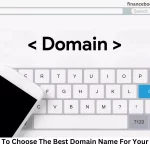Do you want to know how to become an authority in your blog niche? Becoming an authority builds your reputation and experience and is a proven method to monetize your blog.
If you want to become an authority in your blogging niche, there is no better way than building trust with content marketing.
But there are several items to bear in mind when building Authority with a blog.
Now, let’s find out the 8 most critical things you need to follow to change your blog into an authoritative website.
Ready? Let’s get started, then!
Related Article: Should you start a business blog or a personal blog?
How to Become an Authority in Your Blog Niche
When Google searches for trustworthiness and wants to give the best content, it has an indicator: the Authority of a website. Therefore, how can you become an authority in your niche?
#1 Focus on a specific segment
Building Authority throughout a niche can be incredibly hard and costly, particularly when you’re just starting out with a blog.
Instead, if you concentrate on a narrower niche or on more particular themes, you will have a higher chance of separating yourself from the competitors and making an effect.
In my instance, my first intention with my blog was to write about Finance for small and medium-sized firms (SMEs).
But as I fine-tuned my business model, I concentrated on authority marketing and 3 of its most powerful tools: Blogging, email marketing, and book publication.
#2 Create a uniform structure of categories and tags
It is crucial that, when accessing the site, a visitor immediately recognizes what the most relevant themes are so that they capture their attention.
That is why it is vital to start from the beginning with a suitable information architecture for the site and specify the list of keywords that we are going to use in the categories and tags.
In addition, this approach is vital for the SEO ( Search Engine Optimization ) strategy to operate.
Keep in mind that for the website to achieve a high rating by the Google algorithm, the keywords of the categories, tags, and articles cannot be duplicated.
Related article: How to create an SEO-optimized Blog category.
#3 Do something unusual
It is not enough to post generic content. Once our niche has been picked, we must study what sort of content is accessible on the Internet and what the competition is doing.
Review the list of terms that describe your value proposition, then utilize Google Search and other search engines to find the blogs that show at the top of the searches.
Then, examine how you can do better with fresh topics, methods, and forms. For example, if your primary competition publishes solely texts, you can go further and include success stories, infographics, and videos in your articles.
#4 Spend time and resources developing content.
As we previously discussed, establishing Authority with a blog is not something that you are going to accomplish from one day to the next.
It doesn’t matter how great the content is or even if you spend in advertising to make it more apparent; the results are going to take time.
But if you work with a strategy, concentrate on those themes where there isn’t much content accessible yet, and are consistent, one day, you’re going to realize that a post from your blog is on the first page of Google results.
#5 Produce quality and quantity
Your blog content doesn’t simply have to be informative, relevant to your target audience, and well-written. You also have to publish a significant quantity of posts.
Produce quality content once a day. But if you can just do it once a week or even once a month, it’s better than nothing, and it might be a great start.
Among other valuable recommendations, concentrate on blog posts of more than 900 words, which apply as “essential content,” with which you may dive further into a given issue and which provide timeless knowledge that does not expire after a few months.
#6 Offer a solution
Markets are evolving fast, and presumably, yours is no exception. So, if you want to create Authority with a blog, it’s crucial that you remain on top of what’s new and hot, what difficulties your present and future consumers are encountering, and what fresh solutions are available.
You also need to try different formats, content platforms, and channels through which you may offer your knowledge, such as eBooks, a podcast, and a YouTube channel.
#7 Give visibility to the contents
Your content may be amazing, but restricting yourself from posting it is not going to help you gain Authority. It is believed that there are more than 600 million active blogs, with approximately seven million new postings every day (Source).
So, how are you going to get your prospective audience to view yours?
Promotion.
Promoting your posts is almost as important as writing them, so share them through social networks; post shorter versions on platforms like Medium; publish columns in the media, which include references to your site; and participate in events that reinforce your role as an expert in your field of activity.
Related article: 3 free ways to increase traffic to your blog.
#8 Get great connections
This is one of the most crucial parts of building the Authority of a blog. What is it about? To accomplish that, other sites, preferably sites better positioned than yours, should link to your blog (Backlinks).
To get points with Google, the issue is for these links to be natural. For example, they should be created by blogs on the same subject and language.
What can you do to start producing these beneficial relationships?
Write guest posts for other blogs, comments on relevant blogs to get your name and site prominent, be interviewed or cited from the corporate page in a media source, and establish profiles and distribute information on sites like Facebook and Pinterest.
Another really important approach, and one that we don’t generally take into consideration, is to develop internal links inside the blog itself.
Why Is The Authority Of A Website Important?
Why is the Authority of a website important? The Authority of a site influences its ability to rank in search engine results. This implies that the more Authority a site has, the more readers it will obtain via organic search.
If Google doesn’t feel a website is trustworthy, it’s quite difficult for Google to rank such a website higher in the SERP for any target keywords.
Which will make it harder to attract readers to the site owing to its poor visibility.
Authority has a direct influence on the number of viewers your website can reach. Because of this, boosting your reputation and developing trust in search engines should be considerations to consider in your SEO approach.
What Gives A Website Authority?
There are several criteria that go into what gives a website authority. According to a Moz study, “21% of Google’s ranking algorithm depends on “link authority characteristics,” or the amount of links to a domain and the quality of those links (Backlinks), and 19% depends on features. Page-level linking, or the number of links to a specific page. (Internal Linking)”
Search engines establish a website authority of a site based on the following criteria:
- Number of external links or backlinks: If your website has many links from other trustworthy and reputable sites, search engines may conclude that your website is likewise credible and award it a greater authority score.
- How established your site is: In general, the older a website is, the greater its authority.
- How people rate trust: User trust translates into how often they share your material and how they rank it. It is crucial that you examine components that enable these user interactions with your site to establish its reliability.
Basically, the most crucial component that gives authority to your site is the amount of quality links it has from other sites, also called backlinks.
How Do You Make People See You As An Authority?
How do you make people see you as an authority? Als how do you develop trust and leadership? It’s not something you can purchase. It needs to be nurtured, and that takes time.
You can’t be an unknown and become an expert quickly.
However, there are various methods to speed up the process and achieve that level in a period of time:
Focus on a Niche
If you want others to view you as authoritative, specialize in something. Pick a specialty that firmly focuses on your potential clientele and what they need or desire.
With this degree of expertise, you’re also better able to customize your message to speak directly to your potential customers and connect with them emotionally, which is crucial to your success in becoming an authority.
Provide Real Value
Once you’ve identified your specialty, you need to deliver true value. By genuine, I mean delivering information that is of enormous use to your audience.
Then they’ll more likely perceive you as an authority than other possibilities vying for their time and attention.
Be Consistent
The final and ultimate trick in allowing others to see you as an authority is consistency. Consistency is a vital component to establishing your reputation as an expert and creating the trust that comes with that reputation.
Being consistent indicates that you’re not a fly-by-night enterprise here to draw them in and grab their money.
Consistent tells your community that you’re a professional as well as an authority in your subject area.
What Is An Authority In Blogging?
Simply said, Authority in blogging is simply a measure of a website’s legitimacy and trustworthiness. The greater the Authority of a site, the better it will be perceived by Google.
As such, Authority is a crucial emphasis for most SEO practitioners, and understandably so. The most typical SEO strategies, such as content generation and link building, are done with the purpose of boosting Authority.
Authority can’t ensure search exposure — you’ll still need to have targeted keywords for your blog post — but it’s a very good sign of your overall SEO effectiveness.
What Is A Good Domain Authority For A Blog?
Domain authority is a metric used to assess a website’s “strength” in terms of placement. In other words, it enables you to analyze the popularity of a site in a search engine compared to its rivals.
Domain authority varies from 1 to 100. The higher the score, the stronger your site is deemed and the greater possibility your website will rank highly in search results.
So, What are the various levels of domain authority for a blog?
- Domain Authority < 10: Very low Authority
- Domain Authority > 10 and < 20: Low Authority
- Domain Authority > 20 and < 40: Average Authority
- Domain Authority > 40 and < 60: High Authority
- Domain Authority > 60: Very high Authority
- Domain Authority > 80: Extremely high Authority (example: Wikipedia, Youtube, Meta)
With this, I believe you should know the ideal domain authority you should chase for your blog.
Conclusion
Now that you’ve completely grasped how to become an authority in your blogging niche, It is vital you remember that being an authority is not a day job; you can’t start today and expect your audience to believe in everything you say to them.
All of these efforts need time, devotion, and consistency.
The more consistent you are following the 8 guidelines I discussed above, the more they will undoubtedly assist you in paving the route to becoming an authority.
Always note that it will take a longer time before your audience and Google will perceive you as an authority.





